Church & Volunteer Mobilization
Let’s Learn About: Refugees
We are reflecting this month on Independence Day and the freedom that has attracted people to the United States. At World Relief Memphis, we often reflect on America as a country of immigrants and displaced persons. Throughout the generations, people have immigrated to the U.S. and established new lives. That continues today!
Refugees are just one of these immigrant groups.
The amount of competing information around immigration can be overwhelming. But World Relief has been welcoming refugees and other immigrants in partnership with churches and compassionate individuals like you since the 1970s, and for over 10 years here in Memphis!
World Relief Memphis specifically assists those who are seeking safety through various pathways established by the United States Government. In this five-part series, with help from our Initial Welcoming Services and Newcomer Outreach Service teams, we will be sharing the various different legal pathways to the U.S., how those pathways began, how we come alongside new arrivals, and how you can join us in welcome.
History
Refugees are one of the primary groups of people World Relief serves worldwide. To understand who they are and our role in the refugee resettlement process, lets take a look at World Relief’s history alongside legislation in the United States.
1940’s
1944 – The War Relief Commission of the National Association of Evangelicals (NAE) is founded in NYC for churches to address urgent humanitarian needs in war-torn Europe.
1948 – U.S. Congress enacts the “Displaced Persons Act of 1948” following the admission of more than 250,000 displaced Europeans from World War II (State Dept.).
1950’s
1950 – The War Relief Commission changes its name to World Relief Commission of the NAE
1950 – The United Nations establishes the High Commissioner for Refugees (UNHCR), also known as the UN Refugee Agency to “act as guardian of the 1951 Convention Relating to the Status of Refugees, which defines the legal protections for refugees” (USCIS).
1951 – The International Organization for Migration (IOM) was created. Originally called, “Intergovernmental Committee for European Migration,” as they were birthed from the migration crisis following WWII, IOM serves refugees in a similar capacity to the UNHCR (IOM).
1970’s
1972 – World Relief cares for 100,000 war-displaced people in Vietnam through it’s network of missionaries and church partners
1975 – World Relief provides food and medical care in Cambodia for refugees fleeing the Khmer Rouge genocide.
1979 – World Relief launches its refugee resettlement ministry through a network of church partners, helping Vietnamese boat people adjust to life in America. World Relief is the only evangelical agency authorized by the US State Department to resettle refugees.
1980’s
1980 – Congress passes the Refugee Act – “standardized federally-supported resettlement services for all refugees admitted to the United States” (State Dept.). The Act included the definition of refugee and gave instruction for “regular and emergency admission of refugees of all nationalities” (USCIS). It “provided the legal basis for the establishment of The Office of Refugee Resettlement at the Department of Health and Human Services.” This Act is establishes the annual Presidential Determination, setting the annual number of refugee admissions.
2000’s
2005 – The U.S. Citizenship and Immigration Services (USCIS) is created as a part of the Department of Homeland Security and “oversees refugee and asylum affairs” (USCIS). Their officers are “specifically-trained refugee officers who travel around the world to interview refugee applicants seeking resettlement in the United States.”
2012 – World Relief opens offices in Memphis to work with area churches and community partners to create a community of love and welcome for refugees.
*Want a more in-depth history of World Relief, immigration laws, and the resettlement process? Take our free workshop course here
The U.S. Refugee Resettlement Process
With that history, consider resettlement from the milestone of receiving official refugee status to arrival in the U.S.
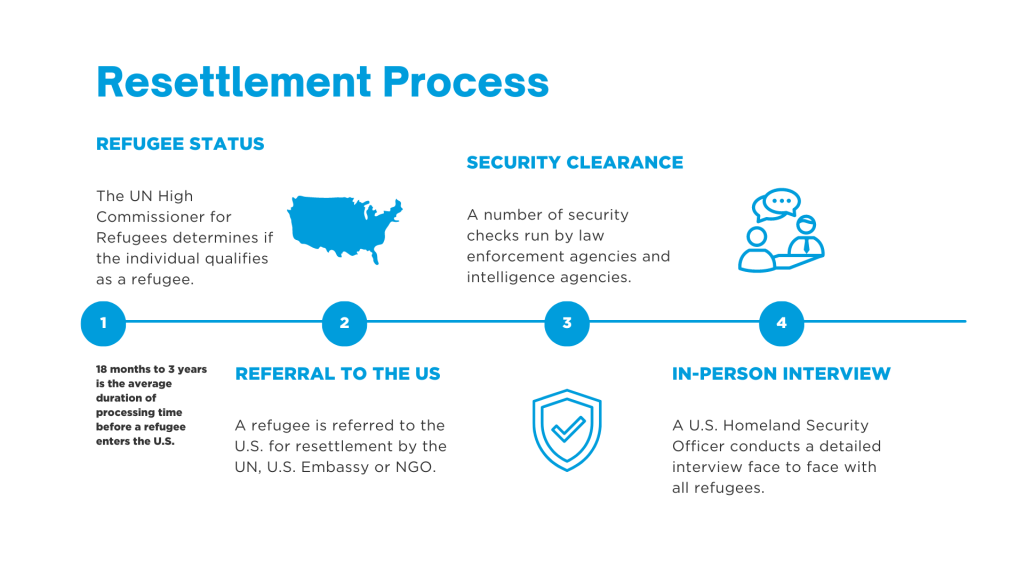
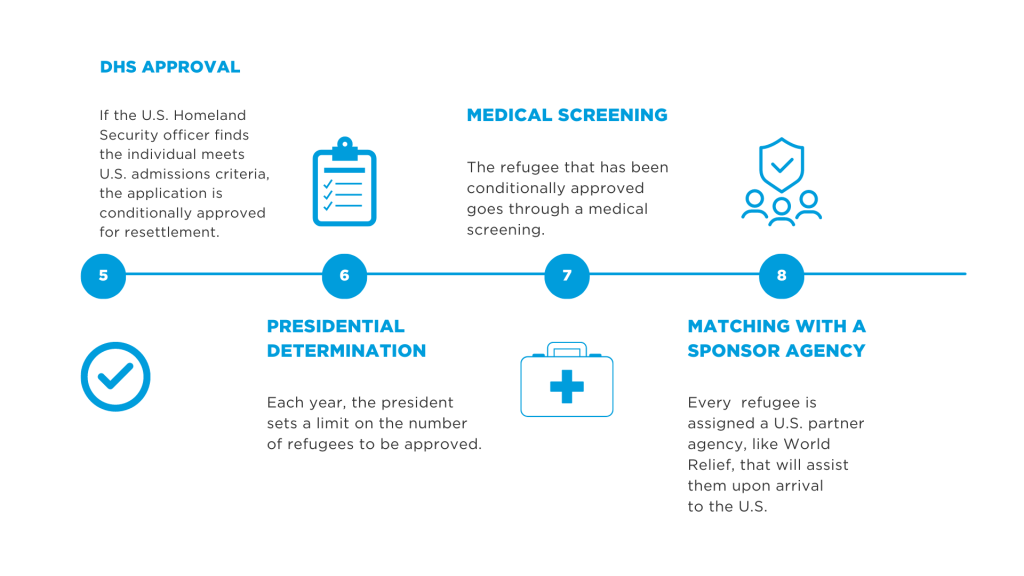
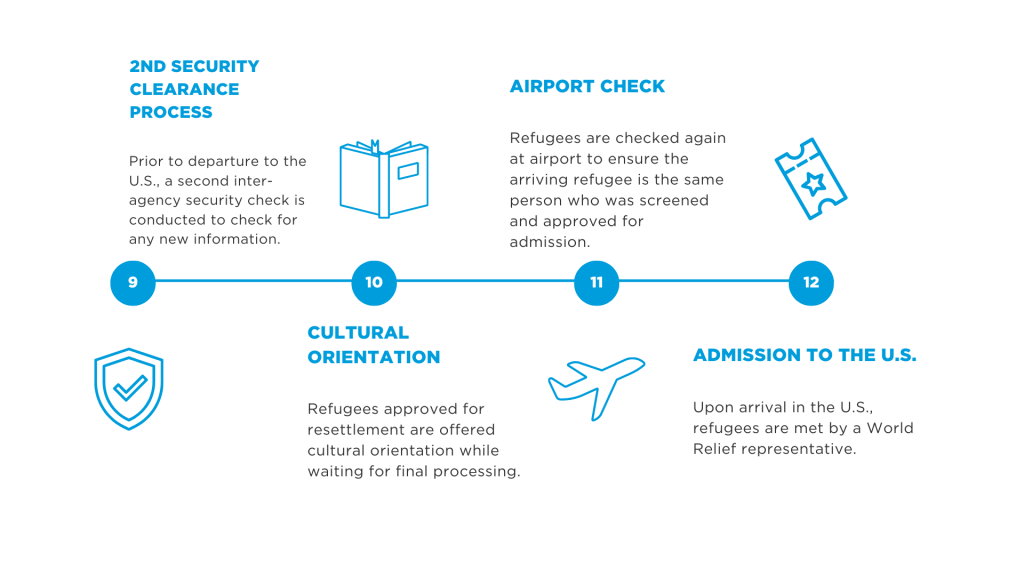
What We Do
Once a refugee is approved by the State Department, they are matched with a resettlement agency. World Relief Memphis is notified of a pending case through our Home Office and accepts the case.
In the days or weeks between this notification and the refugee’s arrival, our Initial Welcoming Services (IWS) team gets to work. A caseworker is assigned and is given access to the case specifics, including a general background of who is coming and if they have specific needs to be considered.
Simultaneously, our Church and Community Engagement staff is recruiting a volunteer Good Neighbor Team of 8-10 individuals to match with the new arrivals.
The caseworker then collaborates with our housing manager to find an apartment or rental house and with the volunteers, sets up the space with required necessities, sourced from donations or by purchasing through a portion of the incoming case’s Refugee Cash Assistance.
Arrival day is exciting! The Good Neighbor Team and IWS staff gather at the airport to provide a warm welcome and to celebrate this milestone. But over the next three months, there are many integration steps that individual or family must overcome. Our caseworkers aid their program participants in registering for their Refugee Cash Assistance, Social Security Card, Medicare, SNAP, and other elible government assistance programs. These programs are key for helping refugees in becoming self-sufficient.
Other vital steps in these first 90 days are the cultural orientation to the U.S., budget meetings reviewing travel debt, the currency system, and how to pay rent/ bills. The volunteer Good Neighbor Team is reinforcing these same principles as they go grocery shopping with a family, support budget planning, or help them practice talking with their landlord.
Once the initial 90 day period nears an end, clients may be matched with other volunteers and enrolled in eligible programs for extended case management:
- Economic Empowerment: aids in job readiness, application process, and placement.
- Holistic Support Services: aids clients in health and wellness goals, especially clients with additional vulnerabilities
- Refugee and Immigrant Youth Services: provides school enrollment services, group mentoring, and one-on-one mentoring where refugee and immigrant youth learn how to set and meet goals in their personal, school, and post-school life.
- The Connect Language Center: English as a Second Language (ESL) program open to program participants and the general public. Here students are enrolled in ESL classes of varying levels depending on starting knowledge.
How You can Help
The resettlement process is not a simple one, and it certainly doesn’t end at arrival. While we might be tempted to look away, the love of Christ compels us to turn toward the need — to consistently and lovingly step toward those who are hurting. If you’re like us, you’re asking yourself: How can I make a difference and create lasting change when the problems in the world are so big?
The good news is none of us has to take this journey alone. World Relief Memphis has been present and working in this city for the past 10 years and is equipped with 80 years of connections and expertise through the World Relief’s global network. We have been partnering with you, the local church and community to make Memphis a more welcoming community.
Here are 4 ways you can be a part of lasting change:
- Learn: There is always something to learn in the refugee resettlement world as we just displayed. World Relief Memphis has a Workshop with courses to learn more about cross-culture friendships with our newest neighbors, reflections on biblical thoughts about immigration, and more!
- Advocate: The immigration system is broken and you have a voice to change it for the better! Check out our Advocate page to see how you can share your voice on issues like passing the Afghan Adjustment Act, creating a just path to citizenship for Dreamers and other long-term immigrants, protections for Ukrainians, Asylum seekers, and more.
- Volunteer: Want to walk alongside individuals and families here in Memphis? Check out our volunteer page to see what opportunity is right for you. You can do everything from apartment set ups, driving clients to ESL classes, mentoring refugee and immigrant youth, to bring in a Good Neighbor Team where you get to welcome and walk alongside a refugee family for the first 6 months of their time in the U.S.
- Give: When you give to World Relief Memphis, whether it be once or monthly, monetarily or gift in kind, you are making a big difference in the lives refugees and other immigrants in vulnerable situations.
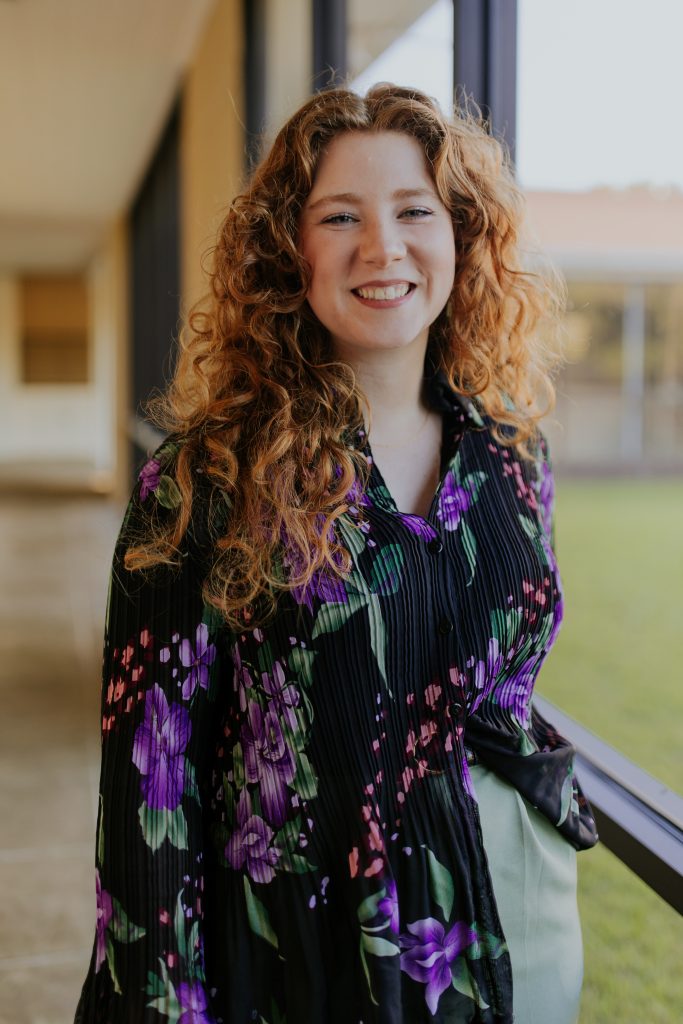
Writer: Kara Spencer
Communication Coordinator at World Relief Memphis, graduate of Harding University, & Memphis native.
If you would like to learn more about World Relief Memphis in the coming months, follow us on social media and sign up for our newsletter to stay up to date on events and volunteer opportunities.
If you are searching for an opportunity to begin making a bigger impact, join our new monthly giving program, The Path, for exclusive updates, virtual events, prayer chains, and stories of hope from the women, men, and children whose lives you change.
A Welcoming Community: Tara’s Volunteer Story
At World Relief we believe in the power of welcoming communities. Read how Tara participates in a welcoming community.
When the Taliban took over Kabul Tara saw many news reports about Afghans fleeing the country. The stories of families needing new homes inspired her to want to make a difference in her own community and an opportunity to serve with World Relief came across her path through her church, Christ the Rock. Tara signed up through her church to lead a Good Neighbor Team. A Good Neighbor Team is a small group of volunteers who welcome, walk alongside, and offer long-term reciprocal friendships with a newly arrived refugee family for six months.
However, Tara’s team had to wait a year before they could be matched with a refugee family. Although the wait was long, Tara says that it was worth the wait to be matched with the family they now partner with. The volunteer team used that time they waited to prepare for their experience as volunteers by watching videos about serving in ways that are empowering and discussing those ideas together as a team.
Building Friendships
Tara’s team was officially matched with their partner family, Joseph and Beatrice* and their children, in the beginning of this year. Joseph and Beatrice’s family is Congolese. Some of the things that the Good Neighbor Team has supported the family in has been transportation to medical appointments, answering questions about life in the U.S., and support through friendship. Tara shared that she was surprised how easily their team has been able to connect with Joseph’s family. Several members of the family speak English well and so the language barrier is less significant than Tara had expected.
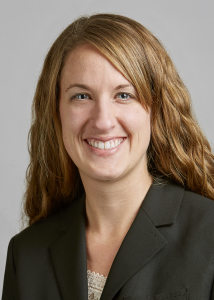
Congolese Hospitality
After volunteering for several months Tara is grateful that she decided to volunteer. She is grateful for her family’s opportunity to learn and grow in their friendship with Joseph and Beatrice. Tara’s family loves to visit Joseph and Beatrice’s family and enjoy time together in their home. Hospitality is very important in Congolese culture and Tara’s family feels honored to receive that hospitality. One of the things Tara is learning is to be more flexible. She says she’s learning that, “it’s about the moment and not the to-do list.”
Embracing Differences
One of the cultural differences that Tara has noticed is differences in how she prays and worships. Although both families share the Christian faith they express their faith very differently. The day after Joseph and Beatrice arrived in the Fox Valley Tara met them in their home with their World Relief case worker. They took some time to pray together. Tara said she was expecting a brief and quiet moment of prayer before moving on to other things. Instead the Joseph and Beatrice took a long time to pray aloud, sing, and kneel.
Reflecting on her volunteer experience Tara has learned more about culture, but it has also made her look at her own community differently. She says she is more aware of the challenges facing newcomers to the Fox Valley—such as access to transportation and healthcare. Tara’s hope is that our community can be a welcoming place for all newcomers.
*Names changed for privacy
If you are interested in volunteering learn about our volunteer opportunities here.
Building a Cross-Cultural Relationship as a Volunteer
Whether you’re a seasoned volunteer or just starting out, Whitney Renfroe agrees that uncertainty can often accompany a cross-cultural relationship. After all, Whitney is no stranger to helping immigrants.
During her college years, this occupational therapist spent a summer month in Greece serving and walking alongside refugees. And it’s the passion that brought her to the Chicagoland area. Being closer to a larger immigrant population meant more opportunities to build meaningful relationships.
As Whitney shares about her friendship with Afghan Paralympian, Farzana, she addresses several uncertainties that often crop up as a cross-cultural volunteer. Following are a few insights to help you get past some of your own doubts and move you closer to building a relationship that can change your life.
God will use you exactly where he needs you. Even if it takes you a little longer to get there.
A simple invitation over a cup of coffee brought Whitney to World Relief Chicagoland in August 2021. Her meeting with an acquaintance who belonged to a church that was a World Relief partner opened her eyes to a new opportunity. They needed volunteers to walk alongside Afghan refugees arriving in the United States.
Whitney logged on to the application, eager to get started. But instead of volunteering, she found herself waiting.
Good timing has a reason.
Coming off the cusp of the Covid shutdown, many non-profit organizations were navigating the sudden broad changes in society – and World Relief Chicagoland was no exception. Volunteer opportunities came Whitney’s way, like setting up an apartment, but the timing didn’t work with her schedule.
As weeks passed by with still no fit, Whitney remained patient but held some doubts. Was this going to happen? Then came the call from World Relief about a role she hadn’t heard of.
“They were pretty open like ‘We recognize you’ve been waiting a really long time to be matched with someone. And we’re sorry it’s been so wild. But we’re wondering if you’d be interested specifically in being a health advocate?’”
A new individual had arrived at the Chicago office. A single Afghan woman who was close to Whitney’s age had a disability that required an extra level of healthcare support. With Whitney’s medical background to help navigate the American healthcare system, Farzana and Whitney were a perfect fit.
Whitney was impressed by the degree of thoughtfulness that World Relief had put into selecting her partner. “They didn’t want it to be just a random, ‘Let’s throw these people together.’ When I realized that, it made me appreciate the amount of time.”
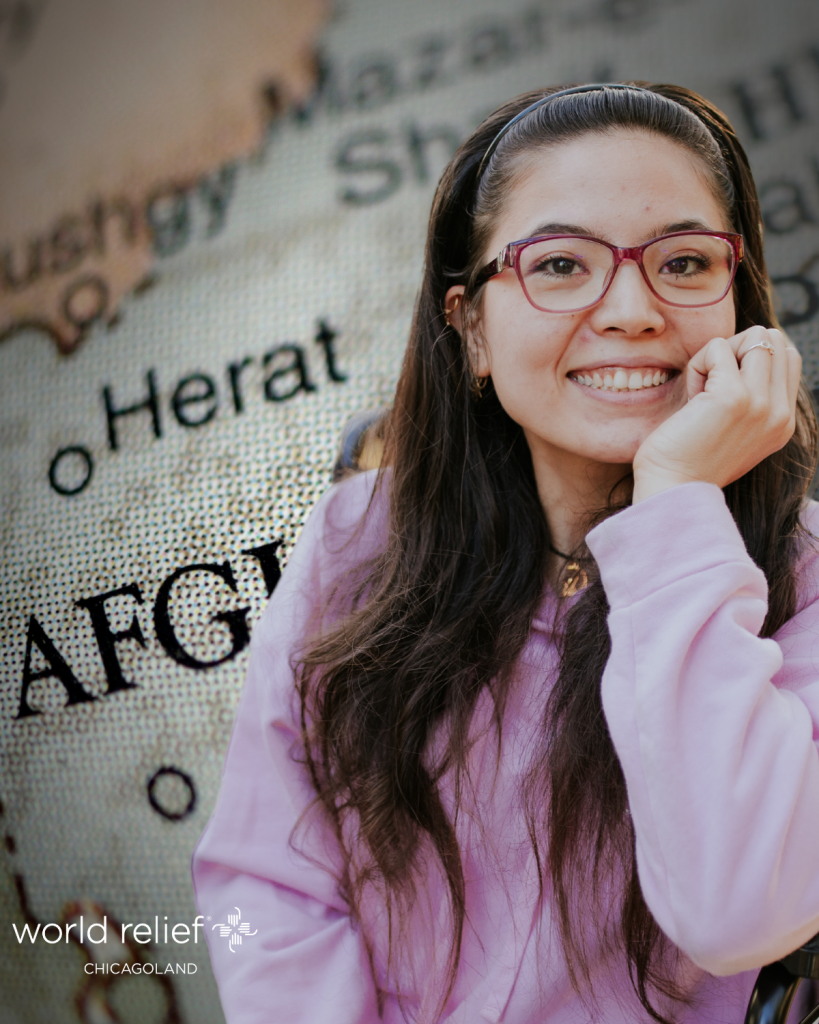
Don’t hold onto assumptions. Someone will always turn them upside down.
“She has taught me a lot about not assuming. Farzana is one of the most go-getting women I’ve ever met in my life.”
Whitney Renfroe
Whitney recognizes how easy it is in our Western culture to draw conclusions or build stereotypes about other cultures based on what’s portrayed in various news and media outlets. But when you take the time to get to know someone, it’s amazing how these portrayals are quickly shattered.
And being a volunteer enables you to experience it.
As Whitney grew closer to Farzana, she found an incredibly educated, resilient, and independent woman who for all practical purposes amplified the American dream. Farzana eagerly grabbed hold of every opportunity given to her. She went from speaking little English to growing exponentially in her usage of it. She began working a job and attending school. And she continued to pursue her passion by getting back onto the basketball courts.
In fact, the nature of their relationship wasn’t exactly how Whitney envisioned it either.
Whitney’s plan was to be a valuable resource for Farzana. Although she took Farzana to her doctor appointments and helped out where needed, much of their time was spent in a different way. “The majority of the time I think was honestly Farzana showing hospitality to me.”
When Whitney came to visit, Farzana was intentional about making her a cup of coffee and spending their time together talking and practicing English. To Farzana, this is where the value lay.
The small things carry weight. Sometimes more than the bigger ones.
Time and location didn’t always make it convenient for Whitney and Farzana to meet regularly. And often it’s this concern that can prevent someone from taking on the role of a friendship partner, health advocate, or youth tutor.
But when they couldn’t meet, Whitney found a number of other things that were just as meaningful. Weekly check-ins were made using WhatsApp, voice messages, or video calls to see how Farzana was doing and to let her know, “Hey . . . I was thinking about you.”
“I think those weekly quick check-ins were really important. It was something small and it didn’t always feel sufficient to me. But that doesn’t mean that there wasn’t a connection made even in those things.”
And with World Relief’s staff partnering with her, Whitney understood she was one piece of a bigger puzzle to help Farzana rebuild her life. “That took a lot of pressure off of me in terms of not feeling like I had to carry the weight of the whole thing. My job was to show up and to be there – to be a resource.”
Addressing the Awkwardness
What about the awkwardness that often accompanies the language barrier in cross-cultural relationships?
Whitney assures others it’s okay to feel awkward. In fact, count on feeling awkward because it will happen. But given what it took for that person to get here, “The least I can do is meet them in the awkward.”
In the meantime, as Farzana learned English, Whitney fell back on nonverbal communication and other small expressions. “You can make a connection without even having words, too. People appreciate a smile, kind gestures like little gifts.”
Sometimes it’s about letting whatever needs to happen in that space, happen.
Being the Bridge
Ultimately, Whitney believes that what it takes to build a cross-cultural relationship is what she strives to be for Farzana. A friend who serves as a bridge between two cultures.
“I would say the reality is, a lot of people come to this country and wonder, ‘Am I going to be accepted? Am I going to make friends? Am I ever going to learn English?’ I think having someone who regularly shows up . . . and just be a kind presence goes a really long way.”
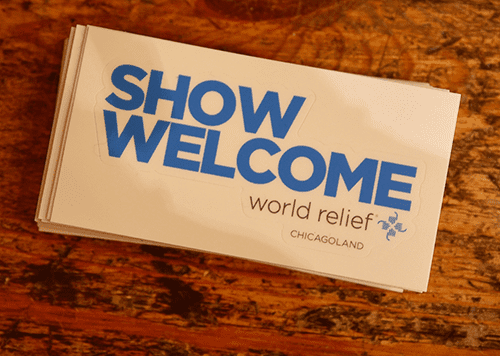
With a higher number of immigrants and refugees arriving in the United States, World Relief Chicagoland needs more volunteers to walk alongside them. Unfortunately, for nonprofits across the nation, volunteering rates have been decreasing. You can be part of the solution — whether it’s becoming a friendship partner, tutoring a young student, or driving someone to a job orientation — there’s a volunteer opportunity to fit your interests and lifestyle. Find the part you play today!
Where can you serve as a volunteer this summer?
Become a Youth Tutor: Read How to Have Impact as a Volunteer Tutor
Serve in a Youth Club or Summer Camp: Read Summer Camp: Fun, Fellowship and First Responders
Being a Person of Peace this Lenten Season
Friends,
As we approach Easter, I am reflecting on the life of Jesus. His time of ministry has had the greatest resounding impact ever known, changing this world over the past 2000 years. I am grateful for the obedience of Jesus to the will of the Father and I am struck by how much God was willing to give of Himself so that we can have a forever home with Him.
During the ministry of Jesus, we read that he and his disciples had no place to call home. As they went throughout the region, they would search for a “person of peace” to welcome them and create a space they could feel at home. As I have reflected on this passage, I find myself pulled toward the term “person of peace”. Who are “people of peace” in our day? What does it look like to embody this in the world around us?
It doesn’t take long for me to think about God’s call to welcome the stranger. The person who welcomes the stranger is a person of peace. Today, there are over 100 million people who are displaced from their homes, some of whom have found themselves arriving here in Chicagoland as a stranger in need of welcome.
Friends, we have the opportunity to be “people of peace” in our present-day world. We can be people who show welcome to our new refugee and immigrant neighbors. Though we are not coordinating housing refugees in volunteer homes at this time, we are working to ensure that every family that needs a place to stay finds one. We have staff committed to networking with property owners and finding long-term residences for those in need. We are coordinating rental support and training for new renters and landlords.
By partnering with World Relief financially through sacrificial giving or a special offering, together we can help find housing for our new neighbors. Together, we can embody what it means to be “people of peace”. Send me an email to talk more.
Grace and Peace,

Rev. Keith Draper
Regional Director of Church Relations
World Relief Chicagoland
630.824.8498 | kdraper@wr.org
Stories of Impact
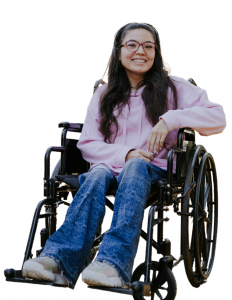
Farzana is an Afghan Paralympian who was forced to flee Kabul in August of 2021.
As a leader and advocate for women in her country, she was no longer safe. She found herself living in temporary quarters at Fort McCoy in Wisconsin. After several months, she was sent to Chicagoland for a better living situation.
Because of partners like you, World Relief was able to find a place for her to live that accommodates her mobility devices.
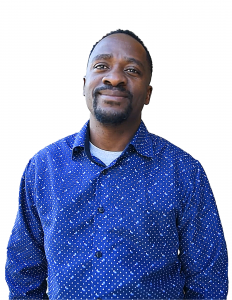
Jerome lived in a refugee camp for 19 years.
Can you imagine that? During his time in the camp, Jerome was already working to make a difference and that made him a target.
Thankfully, he was selected to be resettled and came to the United States.
When he arrived at his first apartment, he was finally able to live in a secure and safe place. He was able to find peace again thanks to people of peace who supported the finding and filling of his new apartment.
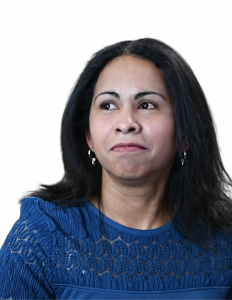
Yomardy left her home in Venezuela to come to the United States on a Fulbright scholarship.
Fully intending to return to Venezuela and use her status as National Teacher of the Year, she soon discovered that she was declared an enemy of the state in Venezuela.
Her honesty about the conditions in her country meant that she could no longer return to her home. Thanks to partners like you, Yomardy was able to find the support she needed here in Chicagoland.
Her new dream is to buy a house to be able to welcome others like her who need a place to call home.
Download their stories as a pdf.
The Impact of Your Giving
$15,000
A gift of $15,000 can provide 1 month of housing assistance to 10 families in need of short-term assistance. This kind of gift provides stability that is vital to the successful launch of a new life here in Chicagoland.
$10,000
A $10,000 gift can provide the support and coordination needed to ensure that housing is available when refugees arrive. This gift can cover coordination for over 80 newly arrived families in need of a home.
$5,000
A gift of $5,000 can provide vital case management service to ensure that newly arrived families learn everything they need to know about their rights and responsibilities as first-time tenants in the United States.
$1,500
A $1,500 gift can prepare two new apartments with the essentials needed for everyday life. For those who had to leave everything behind, this gift becomes some of the first items owned by newly arriving families.
Hope in the Tension of Waiting
Dear Church Leaders,
The peace of Christ to you! Advent is in full swing—and Christmas is around the corner. What feelings does this season stir in you and your congregation—excitement, sorrow, joy, stress?
Rhythms change a bit this time of year, freeing many of us up to gather with loved ones. Personally, I am really hoping for both good connection and down time. I also recognize that for many, broken relationships highlight that all is not right. This season actually hurts.
Refugees also know the pain of separation from community rhythms—when the comfort of being with loved ones at home is replaced by only memories and tears. “Will my life ever feel normal again?” so many wonder as they work to adjust to a new land.
Until God’s promise of the new heavens and earth is made complete, and all the complexities of our broken relationships and systems are healed, our world waits in this tension. No matter how much technological and social progress we make, there lingers a shared sense that not all has not been made fully right yet.
We wait in tension—we qavah—for wholeness.
Living on the margins of society, Mary knew this tension well. Picture her in your mind—the humble, Jewish adolescent, displaced and pregnant, her family heavily taxed by Caesar Augustus, the self-declared son of god. Between the Old and New Testaments, Yahweh had been silent for 400 years. In Mary’s day, all did not feel right.
Her song proclaims a bold hope amidst this tension of waiting: At last! He has come to save us from our brokenness—and to defeat the powers that oppress us. Her voice cries out: Finally! Hope for the humble, the poor and the forgotten of His people. At last, the long-awaited sign! Yahweh’s ancient promise to Israel of salvation and justice is coming true.
Like Mary and our ancestors of faith,we may not know exactly how God will complete this work—and actually, we may not have evidence that circumstances will get better before they get worse. At times, we look around at our churches and communities, stuck in complexity and crisis we cannot fix. But like the prophets declared, our hope is rooted—not in the state of the world or our odds at progress—but in the very person of Jesus Christ. His faithfulness in the past gives us hope for the future He has promised. That one day at last, He will finally rescue us—and the whole creation—from decay and death.
As we wait for King Jesus to come again, we can lean deeply into hope that is rooted—not in summoned optimism or holiday cheer—but in the very character of God who makes good on His promises.
This hope gifted to Mary and to our forefathers is the same hope given today to displaced refugees—and to you and me. Praise the Lord—we need it now as much as ever.
During Advent, I invite you to reflect: who do you know that needs to be invited afresh into this bold, enduring hope?
May the Lord infuse your heart with it this day,
J. Mark Bowers
for all of us at World Relief
Feeling inspired to get involved? See what you can donate to create safe, welcoming homes for refugees – and above all, hope.

J. Mark Bowers is Sr. Training Advisor at World Relief, building our capacity to help churches become places of welcome wherever they are.
Welcoming the Stranger by Opening their Home and Their Hearts: Q&A with Tim and Gretchen Foley
By Nathan Spencer //
How we answer God’s command to welcome the stranger varies from person to person. For Tim and Gretchen Foley, it meant opening the doors of their home on a literal and spiritual level.
Tim, who has traveled extensively in the past, said the experience of being welcomed into another’s home left a permanent impression on him.
“Having traveled internationally and benefited from hospitality, knowing that you’re able to go in your own room while in a new place makes a huge difference in your level of comfort,” Tim said in a recent interview. “I wanted to return that hospitality for folks in our country for the first time.”
Gretchen said her experience with exchange students as a high schooler has persistently fueled her desire to serve.
“I’m from a college town that had a big international community,” Gretchen said. “Growing up, we partnered with the international house and were paired with students who were here for several years for their education. We built friendships through shared meals and holidays. That was immensely impactful to me as a teenager.”
“To have extended relationships with people who speak a different language or have different customs and cultures to learn from is a blessing,” Gretchen continued. “I see our three-year-old playing with a child from a family we partner with. The two don’t speak the same verbal language, but the universal language of love flows through them without a moment’s hesitation.”
This childlike faith is what Tim and Gretchen have been emulating through their work as a host family for World Relief Durham. Read the interview below to learn more about their journey.
How did you first get involved with World Relief?
Tim: We heard about World Relief through an employee who is at our church.
What we heard from her really inspired us and aligned with things that we were already interested in. We’ve always have had a very strong international interest, a desire to engage with and learn from other cultures, and to serve and meet people from other cultures. Knowing that we, in this country, have so much, it seemed a perfect opportunity for us to engage in helping, but also learning.
What led you to decide on hosting families as your primary way to serve?
Tim: Shortly after we signed up to volunteer, it became clear temporary housing was one of the best ways that we could serve, and that there was a need. We had plenty of space in our house for people who needed a spot for a week or two until World Relief could find them permanent housing.
Gretchen: When we were first interested in volunteering, there wasn’t a group of us to be an apartment setup team or friendship partners. We were trying to figure out what we, as a family, could do. We greatly value hospitality. The temporary housing seemed a good fit for that – being able to help people feel welcomed and provide space when they’re first getting here while things are chaotic.
How many families would you estimate you’ve had or how many times have you hosted like that since then?
Tim: Maybe half a dozen, ranging from one night to a couple weeks. Unfortunately, our volunteering after the first couple of families aligned with the decline in refugees coming into the country. There wasn’t as much of a need for temporary housing as was envisioned.
We then partnered with [World Relief Durham] to focus on assisting people who are already here as refugees who had additional needs beyond their first three months in the U.S. They paired us with Yohana, who wanted to go to Job Corps and needed temporary housing before that transition. She came and stayed with us through that, and then she moved in with us for a year after Job Corps.
Gretchen: She also came back to stay with us on the weekends while she was at Job Corps.
Tim: She became part of our family.
Gretchen: We are also now ESL tutors to a Congolese family. We were at their apartment a couple of weekends ago to have dinner and watching our three-year-old play with their grandson was sweet. There’s the hospitality piece, but there’s also that relationship building. Seeing and experiencing our separate families become one family is truly powerful.
What is your favorite story, or family memory, of your involvement with World Relief?
Gretchen: One of our favorite experiences was also one of our hardest. We hosted a Sudanese woman and her two sons. They spoke zero English; we speak zero Arabic. We had no real way to communicate. The boys were at a very inquisitive age and so just figuring out how to manage them – not just in our house – but in our neighborhood was challenging. But with that family, our neighbors really came around and supported both us and them, which was a different experience for us. The neighborhood children befriended them despite the language barrier, and would play with the kids and ride bikes together outside. Another neighbor picked up clothes and shoes for the family from the store. It was beautiful to watch happen in a community that did not typically interact with Africans, and who were giving out of the little they had.
You have served as a host home and as ESL tutors. Have there been any other roles that you served in?
Tim: I’ve done a handful of different things during COVID, as needed. World Relief Durham got 50-pound bags of rice. We put a bunch in my truck and helped deliver those, and we did some apartment setup because things were a little different without being able to be around people. Teams were smaller and requests were more finite and deliberate.
Gretchen: Up until our three-year-old was born, I was working on a farm. The farm wanted to donate food shares last summer, and so we connected them with World Relief. They wound up donating five food shares to some of the families in the greatest need. Every Wednesday over the summer, I along with another volunteer would go out to the farm, pick up the bags of produce and deliver it to three or four of the families that were in Durham and Chapel Hill.
As parents of young children, what would you say your hope, or vision, for the world is, and how is partnering with World Relief helping you create that vision?
Tim: It’s connecting [our children] with the broader world around them in an authentic way. Allowing my kids to learn about the world for themselves and meet new people and learn about new cultures is an important piece of that. This also helps them learn about themselves. Through those relationships, they learn who they are, and who they are in God.
Gretchen: I think there are so many levels to that question. At the first level, it’s just them as kids getting used to being around people who sound and look different from them, and not feeling uncomfortable around that. They are getting to learn about people from people directly rather than a history book, or a news article where somebody else is telling another’s story.
Tim: I also want them to grow up with a hope that the things they see aren’t intractable, and hopeless. Though the world is broken, there is hope through engagement, even if it’s just one life being changed.
Gretchen: Seeing our three-year-old’s eyes light up when he sees Yohana coming up the sidewalk because she’s coming over for the day to hang out and eat a meal with us is so sweet. And seeing him learn how to eat traditional Eritrean food like Injera with her, that’s special.
Tim: And one day, he’ll be old enough to learn about the Eritrean conflict and put those pieces together.
How have you seen your community move together this year?
Gretchen: The work that World Relief is doing right now is so vital, especially as the numbers of refugees allowed into the U.S. are starting to rise again. The farm story I mentioned earlier was something that truly inspired me with how creative it was. Even with COVID raging, people found a way to work together safely to spread love and life to refugees in our community. It may seem small in the grand scheme of the global refugee crisis, but it means the world to those families here.
If someone were to ask you, why World Relief, what would you say to them?
Tim: They do ask us, quite often. I reply with something that is simply the truth.
I don’t know of any other nonprofit working in Durham doing so much tangibly for the community. That’s why, in addition to having a heart for the work World Relief does, we really respect World Relief as an organization. When you donate, your money is going to very important places. When you volunteer, your time is not wasted. You’re being structured into a system that adds the most value to the community and to the people that work with this service.
Gretchen: Over the last year and a half or so, I know World Relief has supported refugees even after their initial six-month financial support period. We saw that with Yohana, and she had been in the U.S. for over a year. World Relief helped her get plugged in with Job Corps. Her old case manager who was no longer officially her case manager still supported her by helping her apply to Job Corps, and then found temporary housing for her with us. That’s above and beyond what one might consider the job description.
It’s not just about getting refugees here and getting them started, to then leave them to figure things out from there. World Relief commits to the long-term walk alongside the refugee community. This is not easy, but it is so vital and speaks to their commitment to answering God’s call to welcome the newcomer.
Honoring our Immigrant Neighbors
For the Lord’s sake be subject to every human authority, whether to the emperor as supreme or to governors as sent by him to punish those who do wrong and to praise those who do right. For it is God’s will that by doing right you should silence the ignorance of the foolish. As servants of God, live as free people, yet do not use your freedom as a pretext for evil. Honor everyone. Love the family of believers. Fear God. Honor the emperor.
I Peter 2:13-17
Peter, writing to Christians in Rome, offers advice on navigating Roman culture. He affirms the role of government to ensure social order, but then encourages them to use their Christian freedom in positive ways. He ends by telling them to honor everyone, including the emperor.
So, what does this have to do with immigration? Too often the immigration conversation seems like a choice between immigration reform and border security. On one side, it’s assumed that support for immigration reform is to be for open borders. On the other, there’s the assumption that insisting on border security means they have no compassion for immigrants and refugees.
The reality is meaningful immigration reform must include measures to help secure the border. At the same time, making it easier to come to this country legally will greatly diminish the need for people to break the law.
Peter tells us we are to honor everyone, regardless of social status. Notice how this text flattens social status. Everyone is due honor—not just citizens, the wealthy, the employed, or leaders… everyone. In this way, the emperor is on the same level as the common person.
All people deserve respect and dignity because we are all created in the image of God—there can be no favoritism. James says the same thing:
“My brothers and sisters, do you with your acts of favoritism really believe in our glorious Lord Jesus Christ?”
James 2:1
Undocumented immigrants and asylum seekers deserve honor and dignity. Immigrants are vital member of our communities who deserve an opportunity to get right with the law, to come out of the shadows.
Congress has the power to reform our immigration system by passing laws that make it easier for people to come to this country. Congress has the power to provide a pathway to citizenship for Dreamers, and to provide a pathway to status for undocumented immigrants.
Ask our leaders to rebuild the asylum system to welcome and support refugees into this country. This is an important way we can honor our immigrant neighbors. When we do this through the proper channels, we “honor the emperor”—we recognize the importance of institutions and laws to preserve the social order.
Our legislatures have the power to enact reform if we have the will to step outside of our ideological camps (both conservative and liberal) and use government to meet the needs of others. We can provide border agents with the resources and tools they need to make sure criminals and terrorists are kept out of our country. In listening to border agents, it’s clear this doesn’t have a be a wall. Instead, more human power, technology, and increased legal pathways are the way to a secure border.
As Christians living in the United States, Peter instructs us to use our Christian freedom for good and not for evil. We can use the cultural power of our government to seek the flourishing and wellbeing of our immigrant neighbors. Consider contacting your member of congress and your senators. Ask them to support immigration reform that is bi-partisan, honors our immigrant neighbors, and upholds the importance of the rule of law.
Inspired to get involved in the conversation? Sign up for our six-week advocacy classes using “Welcoming the Stranger” by Matthew Soerens and Jenny Yang.

Jason Lief lives in Sioux Center, Iowa and works for the National Immigration Forum as a Bibles, Badges, and Business Immigration Mobilizer.
Email: jlief@bbbimmigration.org
Image Before Immigrant
Earlier this year, for the first time on record, the number of forcibly displaced people in the world hit 100 million. What that means is that one in every 78 people on Earth is displaced from their home as a result of war, violence, famine, and human rights violations each day.
We’ve welcomed over 3,500 refugees into our Quad Cities neighborhood since 1999. And as a member of that neighborhood, an employee at World Relief Quad Cities, and as a Christian, that number is staggering. It’s heart-breaking.
A few things come to mind as I reflect on that number. The first is that, when we talk about the 100 million, we’re not just talking about a number, we’re talking about people. These are men, women, boys and girls – of all ages, of many different races, and of incredible individual journeys that we, as Christians, are called to engage with (Matt. 25:31-45).
This is the challenge for us, as Christians, when it comes to resettlement: to put a human face on the number, first and foremost. Otherwise, the problem has a much harder time affecting us personally, and a much easier time remaining out of sight, out of mind, and certainly not right here in the middle of our communities.
These 100 million aren’t just people “over there,” either.
While many refugees do live “over there” – across oceans in refugee camps waiting to move on to a place like America where they and their families can be safe – many of them also live right here (or soon will live right here). And I don’t just mean in the country. I mean, here in the Cities – in your neighborhood.
I believe that, as pastors and Christians in the Quad Cities, we have an important question to ask ourselves: What will we do today and in the future as an incredible opportunity to fulfill our Matthew 25 and 28 mandates sits in our own backyards?
Most importantly, though, when I think of these people, I’m reminded that they each carry something they received long before they were called “immigrant” or “refugee.”
“So God created man in His own image,
in the image of God He created Him; male and female
He created them.”
(Gen. 1:27)
The fact of the matter is that from the very beginning, God set in motion a pattern of imbedding every person that would be with a dignifying status – His own image.
Because of this, we should be reminded that when it comes to people – wherever they’re from – it’s personal to God. No amount of cultural differences, languages, national borders, or miles between us have ever diminished this certitude.
Pastors, since moving here in April I’ve had the joy of sitting down with you and talking about what God is doing in the Quad Cities, and I’ve shared with you how I believe immigrants and refugees are an integral piece of that movement among us.
Today, I want to challenge you (along with myself) with three things.
- Let’s get face-to-face. Let’s sit down with refugees and enjoy a meal together and take the time to hear their stories and to learn about their experiences with the goal in mind of being like Jesus who ate many meals with many people very different than Him. World Relief QC is here to walk alongside, and I promise it will fill you with much joy.
- Let’s impact our neighborhood. I challenge you to talk to your churches about serving the neighborhoods these refugees live in – areas like Century Woods in Rock Island. At the end of the day, doing so isn’t just filling a need or showing kindness to the foreigner among us, it’s fulfilling the Great Commission right here, right now.
- Let’s see them as image-bearers before seeing them as immigrants. When we look to immigrants and refugees in our neighborhood, let’s think and speak of them as “fearfully and wonderfully made” before the word “foreigner” crosses our minds and mouths.
I believe in the Quad Cities and its capacity to continue welcoming the foreigner and the stranger in our midst. But even more, I believe in what God is doing here, both through your churches and through our office. Would you consider partnering with us through prayer and service to bring Christ’s love to the nations in our neighborhood?
Blessings to you, today.
Feeling inspired to get involved? Schedule a conversation with Spencer. Or, request a guest speaker at an upcoming event.
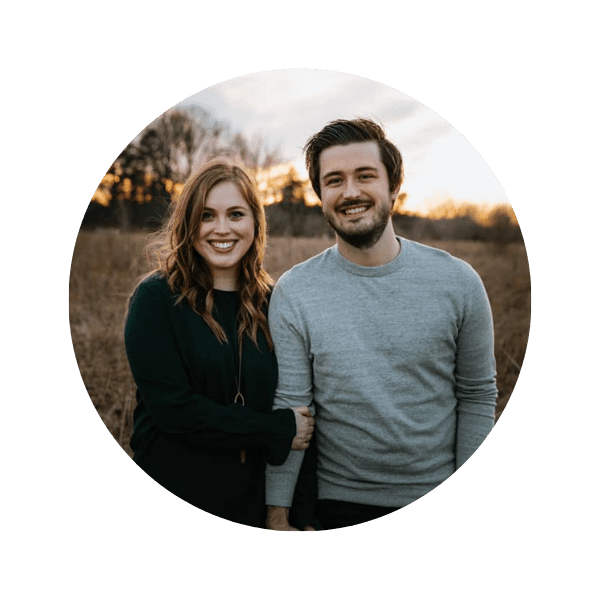
Spencer Conner is the Church Mobilizer at World Relief Quad Cities. He is originally from Atlanta, GA and has served as a Student Pastor in several churches between North Carolina and Kentucky over the past decade. Spencer is married to Beth, World Relief Quad Cities’ Community Engagement Manager, and they live in Davenport, IA with their golden retriever, Tuck.
How to Have Impact as a Volunteer Tutor
The volunteer tutors at World Relief have a superpower: they know how to bring out the unique gifts of each student to help them grow. Here’s how one tutor used a child’s passion to overcome his fears so he could flourish.
Aaron* is a 6-year-old boy who arrived with his family several years ago from an oppressive African country called Eritrea. For the past year, Aaron has been part of the Children & Youth program. He received tutoring support, participated in the summer program, and engaged in the spring student leadership team – a model set up to encourage active student participation in planning the summer program.
When Taylor*, Aaron’s volunteer tutor, first met him in 2021, she found it difficult to get him to say a word. In fact, no one could get him to talk. He was extremely shy. He kept his camera off during Zoom meetings. He took a long time to answer questions. He even struggled to share his own name.
But that was about to change when Taylor discovered this young boy’s passion. Aaron loved to draw.
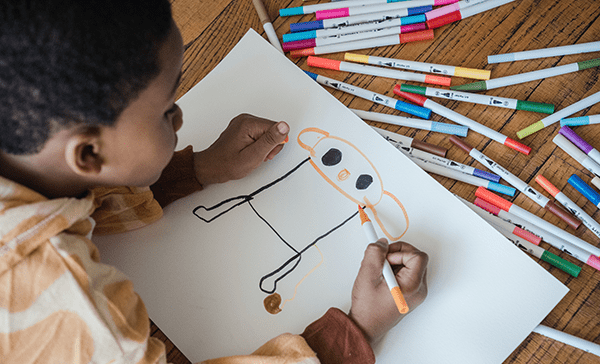
Turning Passion Into Learning
Taylor took Aaron’s love for drawing and turned it into an impactful teaching tool. Tutoring time became drawing time. As Aaron formed an object on his sheet of paper, Taylor taught him the English name for that object. She then followed up with how to spell it. With this learning process, Aaron grew stronger in his English skills.
Before long, he also grew in his confidence. Aaron began to turn his camera on for Zoom calls. He shared his opinion in group discussions with other students on the leadership team. And he grew excited about what the 2022 summer program would look like.
In fact, he didn’t miss a single day.
Turning Fear Into Friendship
Aaron was initially apprehensive about meeting new people when the summer program began. He didn’t want to leave the safety net of his cousins who were with him. But as time progressed, so did his willingness to make new friends.
Before long he was running around, playing with other boys his age, and chatting with new friends. Rides in the van to and from the program turned into times to play and share toys with the kids that rode alongside him – and to heroically rescue a new friend’s toy that fell beneath the seats.
As he grew to enjoy his interaction with the program leaders and volunteers, his friendship with them blossomed as well. After one intern had her last day at the summer program, Aaron asked his aunt to call her. He already missed her and wanted to talk with his new friend.
Your Impact as a Volunteer Tutor
Each year children just like Aaron grow in confidence and self-esteem because of the one-on-one connections they make with their volunteer tutors. Immigrant and refugee youth who otherwise may have stayed isolated and alone are supported in trying new activities, expanding their language skill, and forming new relationships. All because volunteers choose to invest in the future of these young people.
You can make a lasting difference in the life of a refugee child. Start today.
*Names changed.
Read more about the impact happening among children and youth!
Summer Camp: Fun, Fellowship and First Responders – World Relief
How Refugee Children Reshape Resettlement for Their Families – World Relief
The Refugee Journey to Home in a New Community (worldrelief.org)
5 Ways to Keep Welcoming Afghans
In August 2021, the U.S. military withdrew from Afghanistan, and Kabul fell to the Taliban. Many Afghans who had assisted the U.S. government were left at considerable risk. Since the withdrawal, an estimated 84,600 Afghans have been evacuated to the U.S.
Over the last year, people like you have helped us welcome over 330 of those Afghans to Chicagoland. World Relief staff, volunteers, church partners, and donors have given generously of their time, friendship, and resources to help these families and individuals begin rebuilding their lives.
Within weeks of Kabul’s fall, churches gathered household supplies to transform empty apartments into homes for Afghan arrivals. Volunteers formed Good Neighbor Teams to help families adjust to life in the U.S. And, even as they began rebuilding their own lives, leaders emerged from the Afghan community to help us better welcome our new neighbors.
Now, we invite you to keep leaning in. Do not grow weary of doing good — the work of welcome doesn’t stop when headlines fade.
Here are 5 ways you can keep building a movement of welcome for Afghans in the U.S. By continuing to advocate with, pray for and walk alongside them, you can embody Christ’s love for all people, whether or not they’re making headline news.
1. Ask Congress to provide lasting protection for evacuated Afghans
Many of the Afghans evacuated to the U.S. were granted entry as “parolees”, meaning their immigration status is temporary. If left unchanged, tens of thousands of women, men, and children from Afghanistan resettled in the U.S. have uncertain futures.
Take action today on behalf of your Afghan neighbors by emailing Congress and urging them to pass the Afghan Adjustment Act, which will provide lasting protection to evacuated Afghans in the U.S.
2. Learn about Afghan culture to better connect with your Afghan neighbors
As evacuees from Afghanistan continue to rebuild their lives in the U.S., you may find yourself wondering — How can I better connect with and serve my Afghan neighbors?
In the Afghan Culture Guide, an interactive, online course from the World Relief Workshop, we share essential knowledge about Afghan culture, unpack common tension points and provide practical tools to help move you towards a mutually enriching friendship with your Afghan neighbors. Now through September 30, enroll for 50% off with code AFGHANCULTUREGUIDE50.
3. Volunteer alongside Afghans in your community
Over the last year, volunteers across the U.S. have demonstrated love for their Afghan neighbors by serving alongside them. Whether providing transportation, helping newcomers learn English, or making an apartment feel like home for a new arrival, volunteers play an essential role in embodying hospitality and welcome for refugees and immigrants, including those who have fled Afghanistan.
Start volunteering here!
4. Apply to work at World Relief
If you’ve ever wanted to grow your gifts and talents while serving your refugee and immigrant neighbors, this is your chance! World Relief is hiring for open positions across our U.S. network and internationally.
Whether you have a passion for mobilizing volunteers and churches to welcome refugees, advocating for immigrants’ rights, or providing support and services to your newcomer neighbors, we need people like you to join our team. Apply today to put your faith into action and be part of the movement of welcome.
5. Join The Path and give a gift that lasts
Rebuilding lives and regaining stability takes time. Over the next few months, World Relief is expected to resettle an additional 500 Afghans. When you join The Path as a monthly giver, you help ensure our newest immigrant neighbors are welcomed and supported. Together, we can sustain a movement of welcome long after the headlines fade.

Kelly Hill serves as a Content Writer at World Relief. She previously served as Volunteer Services Manager at World Relief Triad in North Carolina before moving to Salt Lake City. With a background in International and Intercultural Communication, she is passionate about the power of story to connect people of diverse experiences.











